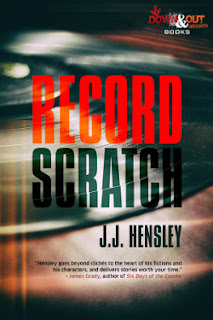Scott D. Parker
I’ve now watched the second season of Amazon’s “Reacher” and not only am I caught up, I’m all in.
Let’s be fair: I was all in back in the first fifteen minutes of the pilot episode, when Reacher did the Sherlock Holmes thing to the local police detective. Alan Ritchson’s portrayal of Reacher is fantastic. He has the brawn to take on anyone and be scared of no one. He has the brain to outthink any opponent, usually before they even realize it. But it’s Ritchson’s gentle demeanor that is probably my favorite part of the character on screen.
Season 1 is Reacher the Wanderer, the guy who literally walks the earth (a modern day version of David Carradine’s “Kung Fu”?). In this season, we get strangers who question Reacher’s lifestyle choice. In Season 2, we get Reacher’s backstory in the form of his old army unit.
Getting Most of the Band Back Together
The main plot of Season 2–based on the novel Bad Luck and Trouble—involves a mysterious group taking out the members of Reacher’s old army unit, the 110th Special Investigations Unit. Reacher’s ally from Season 1, Neagley, sends Reacher an SOS (in the form of a particular dollar amount on an ATM receipt). Fearing that the entire 110th is on someone’s hit list, they join forces to figure out who’s behind it all.
As a Reacher newbie, I really enjoy this season specifically because we get backstory. Interspersed with the main plot, we get flashbacks to when Reacher commanded the military police unit. We get to see the big man actually be part of a team of people he can rely on to have his back just as he has theirs.
Particularly funny are all the comments his former soldiers give him in the present. Other than Neagley, we are introduced to David O’Donnell who is now a lawyer with a family and Karla Dixon, a forensic accountant and one who pined for Reacher back in the day. I particularly liked O’Donnell because he’s a smaller guy, married (in direct opposition to his earlier life), and who is perfectly willing to stick his neck out for the team, but knows he cannot withstand all the punishment that Reacher can…but still does it.
O’Donnell and Dixon both haven’t seen Reacher in years and they pepper him with questions about his current life, why, and what his future plans are. His calm replies typically broach no follow-up and they just find it odd. As most of us do, to be honest.
Seeing these four operate together is fantastic. They’ve each acquired new skills since leaving the army, but they remain steadfastly loyal to each other. That kind of camaraderie is something we all would like in our lives.
Taking No Prisoners
As you can imagine, as Reacher and his team learn more and get closer to the bad guys—lead by Robert Patrick, a guy who can do smarmy with ease—there are numerous set pieces where the bad guys send out ruffians to take out Reacher and his friends. Love every one of them! It’s great to see the different fighting styles of the four former army cops as they dispatch the bad guy, but not always without injuries.
A New Ally
Season 2 also features an NYC detective, Gaitano Russo, who initially thinks Reacher and his pals are up to no good but, ultimately, comes around to helping them. Russo is played by Dominick Lombardozzi, an actor I know from “The Wire.” The way Lombardozzi reveals what kind of cop he is and why is wonderful and is a great part of this season.
What’s Next?
I know that Reacher Season 3 has been greenlit so when it debuts, I’ll be there on Day One. Both seasons of Reacher are great and I recommend them.
In the meantime, however, I’ll be doing two things. One, I’ll revisit the two Tom Cruise movies. Yeah, yeah, yeah, I know they’re not like the books, but I’ve already seen them and enjoyed both. Now I just want to rewatch in light of Ritchson’s portrayal of the character that’s more in line with the books.
And the second thing I plan on doing is the thing Lee Child wished I did twenty-eight books ago: read a Reacher novel or two. Anyone got a Top 5 they’d like to share?









